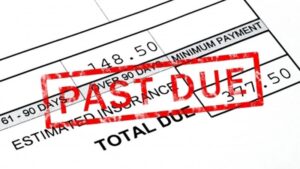Debt Assignment: What You Need to Know

You may have heard the term “debt assignment” tossed around in the world of finance, but what
does it really mean? Simply put, debt assignment is when a lender passes on your debt to someone
else, typically a third party. This third party then takes over the responsibility of collecting what you
owe. It might sound like a simple swap, but there are some important things you should know about
how it works and how it can impact you.
Debt Assignment Notice
First things first, if your debt is assigned to someone else, you should receive a notice. This notice
tells you that your debt is now in someone else’s hands and provides the necessary details for
making future payments. If you keep paying the old lender after the debt has been assigned, your
payments might not be accepted, and you could unintentionally fall behind on your payments.
But there’s more to debt assignment than just moving numbers around. It can also come into play
when things get legal. Companies specialising in debt assignment can help chase down those who
owe significant amounts, especially when the costs of legal action are too high for an individual or
company to handle alone. These companies, like Insolvency and Law (I&L), take on the risk, making
sure their clients don’t have to bear the brunt of any legal mishaps.
Insolvency and Law’s Approach
I&L’s approach involves using legal tools, like a Winding up Petition, to encourage those reluctant
debtors to pay up. By freezing a debtor’s bank accounts and making their impending financial
troubles public, they create a sense of urgency for the debtor to settle their dues, especially if their
business is teetering on the edge of insolvency.
It’s essential to remember that if you find yourself in such a situation, seeking advice from a legal
professional is a wise move. It ensures that your rights are protected throughout the process and
that the terms of your original debt agreement are respected.
In the end, while debt assignment might seem like a straightforward solution for creditors, it’s
essential to navigate it with caution and understanding. Clear communication and adherence to legal
guidelines can make the process smoother for everyone involved, making the financial world a fairer
and more stable place for both lenders and borrowers.
Debtor Alert: Theodore Global Ltd
Theodore Global Ltd: A Company That Fails to Pay Its Staff and Trades While Insolvent If you’re thinking about working with, or for Theodore Global…
Read MoreIrene MacKenzie- The Gatekeeper of Silence
Irene MacKenzie and the Web Around William Jackson In the shadows of the alternative investment world, where buzzwords are abundant but redemptions are not, one…
Read MoreThe Grim Truth for Loan Note Holders -79th Luxury Living Six Ltd (LL6)
No assets or safeguards. No clear path to recovery. If you’re one of the many investors who entrusted your money to The 79th Group’s loan…
Read MoreOverdrawn Directors’ Loan Accounts: How to Avoid Trouble
Many company directors borrow money from their businesses through what’s known as a director’s loan account (DLA). In principle, there’s nothing wrong with this, so…
Read More



